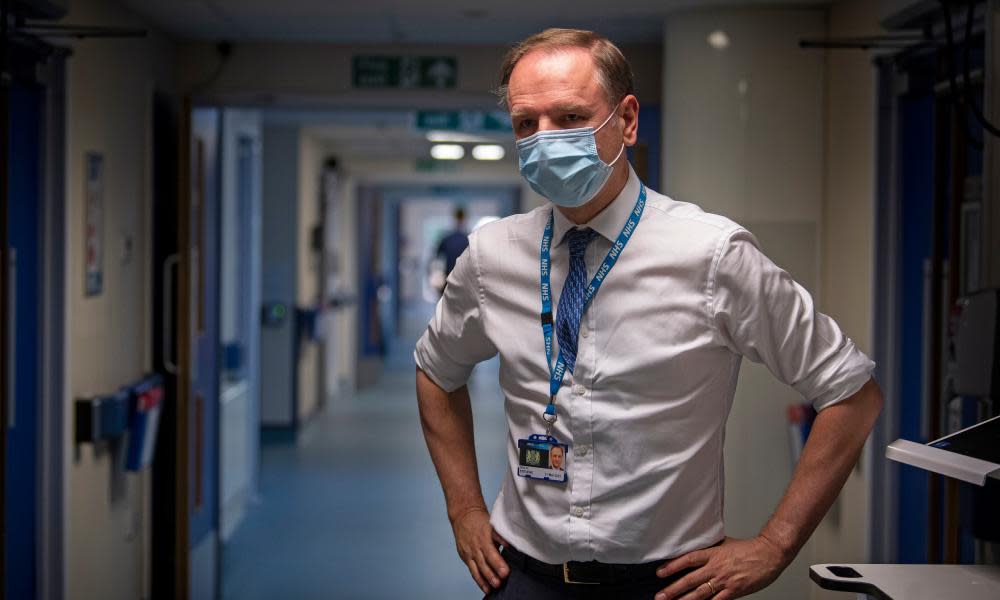NHS England spends £160m on new 'Covid-friendly' cancer drugs

NHS England is spending £160m on new “Covid-friendly” cancer drugs that will be less likely to damage the immune system and, in some cases, can be taken at home so that patients do not have to visit hospital.
NHS England said 2,000 patients had already benefitted from a range of treatments approved for use as “swaps” for existing drugs. More will be available from this week, after a series of deals struck between the NHS and pharma companies, it said in a statement.
Some of these new options mean that patients can take tablets at home or receive medicines with fewer side-effects instead of undergoing hospital-based treatment that can leave them more susceptible to coronavirus and other infections.
Targeted hormone therapies such as enzalutamide for prostate cancer and broadened use of lenalidomide in the treatment of myeloma – bone marrow cancer – are among the options now available. Bowel cancer patients whose tumour has a specific genetic marker will be offered the immunotherapy drug nivolumab.
Simon Stevens, chief executive of the NHS, said: “Since the first case of Covid in England six months ago, NHS staff have fast tracked new, innovative ways of working so that other services, including A&E, cancer and maternity could continue safely for patients and it is thanks to these incredible efforts that 65,000 people could start treatment for cancer during the pandemic.”
Prof Richard Sullivan, director of the institute of cancer policy at King’s College London, said cancer patients should be protected not just through a change of therapies but through proper individual risk assessment, ready and rapid assessment to coronavirus testing and good biosafety protocols.
“My colleagues in medical oncology and other disciplines have been managing the trade-offs for at-risk patients since the start of this pandemic, and doing this perfectly well. The announcement makes this sound like a ‘major initiative’ which it is not. There is no such thing as Covid-friendly,” he said.
“Overall this will be useful for a few people, but really we adapted our protocols. What we don’t know (and will not for a number of years) is what the real impact on survival will be as a result of these changes. Covid-friendly does not mean equivalence. So we will have to wait and see.”
Michelle Mitchell, Cancer Research UK’s chief executive, welcomed the announcement. “This is encouraging news for some patients, who could now go ahead with their treatment, when it might have previously been on hold due to Covid-19. In recent years, successful price negotiations between the NHS and drug manufacturers have significantly improved patients’ access to new cancer medicines, but cancer doesn’t stop because of a pandemic, so it’s fantastic to see this work continuing throughout this difficult period.”

 Yahoo News
Yahoo News 
